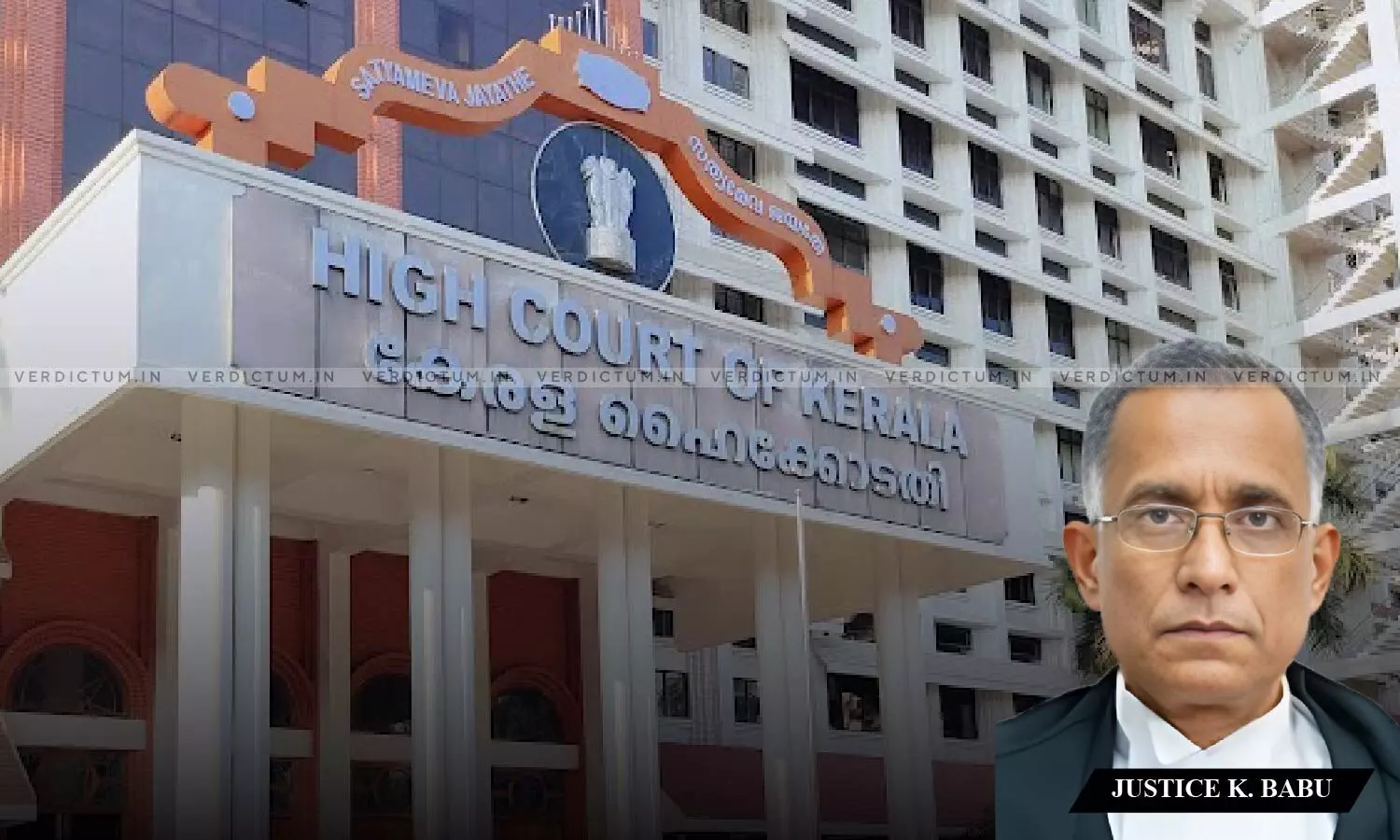
If Presence Of Indian Citizen Is Likely To Prejudice Friendly Relations With Foreign Country, It Is Reasonable Ground To Refuse Passport: Kerala HC
 |
|The Kerala High Court has observed that if the presence of a citizen of India in a foreign country is not in the public interest and is likely to prejudice the friendly relations of India with any foreign country, it is a just and reasonable ground to refuse passport and related travel documents to him.
The Bench of Justice K Babu held, “The genuine apprehension that the presence of a citizen of India in a foreign country is not in the public interest and is likely to prejudice the friendly relations of India with any foreign country is a ground to refuse passport and related travel documents to him. Such a restriction is just and reasonable and not arbitrary or oppressive.”
Advocate R Krishnakumar appeared for the Petitioner, and DSGI Mini Gopinath appeared for the Respondents.
The Petitioner/Accused alleged to have committed the offences punishable under Sections 370, 420 read with Section 34 of the Indian Penal Code and Section 23 of the Narcotic Drugs and Psychotropic Substances Act, 1985. The allegations against the Petitioner were that in furtherance of the common intention to export narcotic drugs and psychotropic substances to Qatar, the Petitioner and the other accused promised a job in Qatar. One person carried a bag containing narcotic drugs handed over by the petitioner, and the other accused, without knowing the contents in it, landed in Qatar. The Qatar Police found 4 kgs of ganja in the bag in possession of that person and arrested him. Based on the statement given by the mother, the Police registered the present crime. The petitioner and the other accused were involved in human trafficking.
The petitioner filed an application under Section 22(a) of the Indian Passports Act, 1967, seeking permission to leave India before the Special Court, where the FIR is pending, but the Special Court rejected his application. Hence, the present petition.
The Petitioner submitted that he had a job in Abu Dhabi, and if he was not given permission to travel abroad, he might lose his employment. The Public Prosecutor opposed the application on the ground that in view of the allegations levelled against the petitioner, if he is permitted to leave India, it would not be in the public interest. The DSGI also opposed the application on the ground that permitting the petitioner to go to a foreign country may affect the friendly relation between India and the other country.
The Court said, “As the test propounded by Art.14 pervades Art.21, the law and procedure authorizing interference with personal liberty must also be right, just and fair, and not arbitrary, fanciful or oppressive. Our Constitution does not guarantee the right to any particular procedure for the deprivation of life or personal liberty besides those contained in Art.22. The Legislature is left free to lay down any procedure within the ambit of the legislative power subject, of course, to the limitation contained in Arts. 14, 19, 20 and 22.”
Accordingly, the Court dismissed the petition.
Cause Title: Shanid @ Shani v. State of Kerala and Ors. (Neutral Citation:2024:KER:72238)
Appearances:
Petitioner: Advocate R Krishnakumar
Respondents: DSGI Mini Gopinath, PP Nima Jacob and Advocate Krishna TC